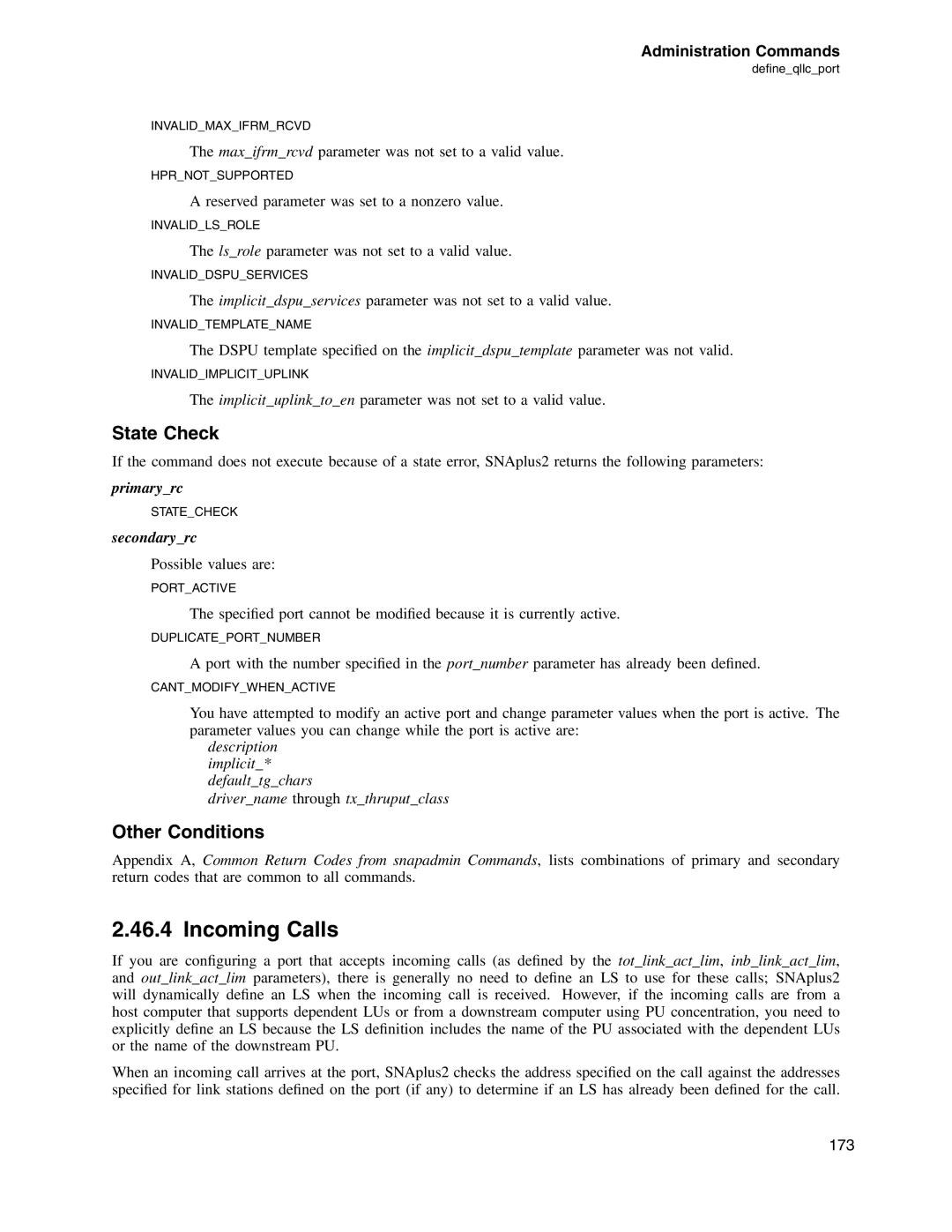Administration Commands
define_qllc_port
INVALID_MAX_IFRM_RCVD
The max_ifrm_rcvd parameter was not set to a valid value.
HPR_NOT_SUPPORTED
A reserved parameter was set to a nonzero value.
INVALID_LS_ROLE
The ls_role parameter was not set to a valid value.
INVALID_DSPU_SERVICES
The implicit_dspu_services parameter was not set to a valid value.
INVALID_TEMPLATE_NAME
The DSPU template specified on the implicit_dspu_template parameter was not valid.
INVALID_IMPLICIT_UPLINK
The implicit_uplink_to_en parameter was not set to a valid value.
State Check
If the command does not execute because of a state error, SNAplus2 returns the following parameters:
primary_rc
STATE_CHECK
secondary_rc
Possible values are:
PORT_ACTIVE
The specified port cannot be modified because it is currently active.
DUPLICATE_PORT_NUMBER
A port with the number specified in the port_number parameter has already been defined.
CANT_MODIFY_WHEN_ACTIVE
You have attempted to modify an active port and change parameter values when the port is active. The parameter values you can change while the port is active are:
description implicit_* default_tg_chars
driver_name through tx_thruput_class
Other Conditions
Appendix A, Common Return Codes from snapadmin Commands, lists combinations of primary and secondary return codes that are common to all commands.
2.46.4 Incoming Calls
If you are configuring a port that accepts incoming calls (as defined by the tot_link_act_lim, inb_link_act_lim, and out_link_act_lim parameters), there is generally no need to define an LS to use for these calls; SNAplus2 will dynamically define an LS when the incoming call is received. However, if the incoming calls are from a host computer that supports dependent LUs or from a downstream computer using PU concentration, you need to explicitly define an LS because the LS definition includes the name of the PU associated with the dependent LUs or the name of the downstream PU.
When an incoming call arrives at the port, SNAplus2 checks the address specified on the call against the addresses specified for link stations defined on the port (if any) to determine if an LS has already been defined for the call.
173
